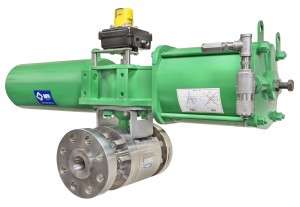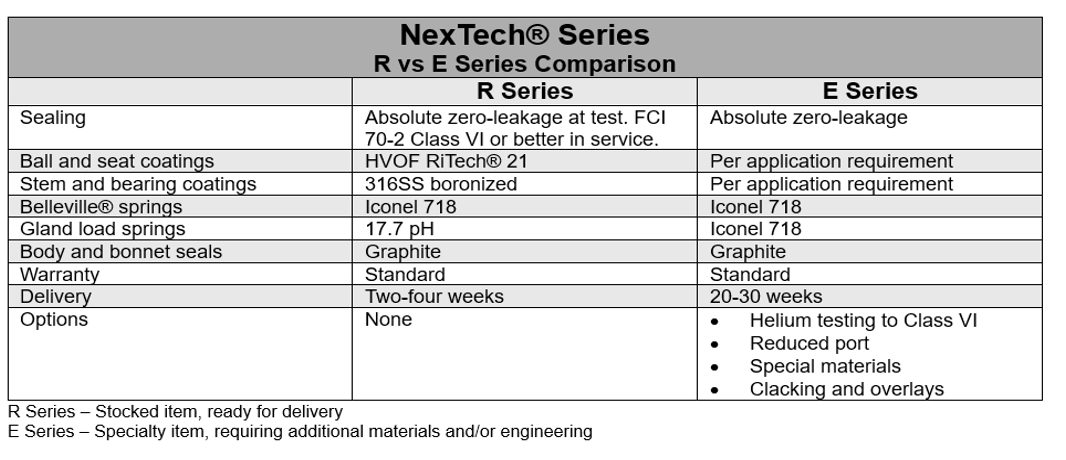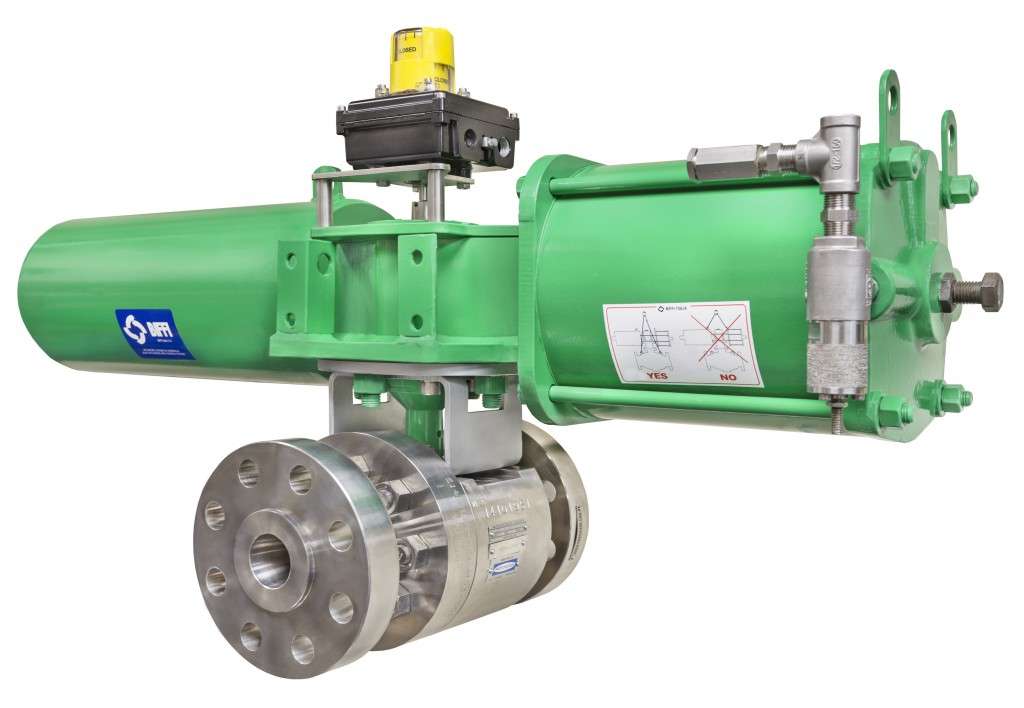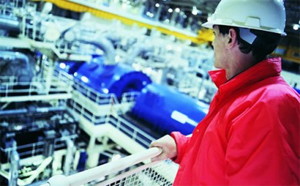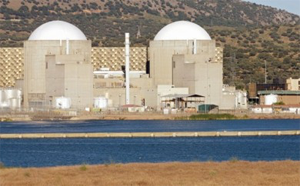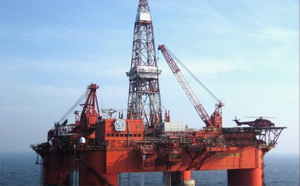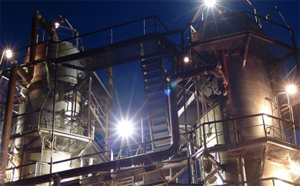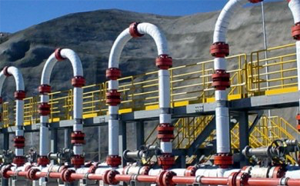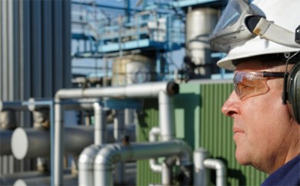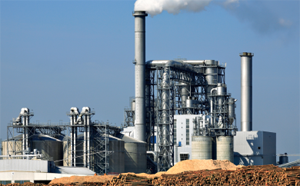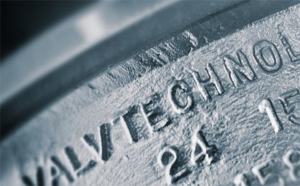
The Next Generation in Trunnion Technology™.
ValvTechnologies is committed to excellence in the design, manufacturing, service and testing of all its severe service isolation valves, while providing absolute tight shut-off solutions to meet and exceed customer expectations.
The NexTech® R Series (regular series) utilize the same coating and live-loading technology that built the V Series product line, but in a lower-torque, inherently bi-directional package. NexTech® valves are designed and configured to handle corrosive, high-temperature, high-cycle, high-solid applications requiring tight shut-off. This valve represents the state-of-the-art in severe service metal seated ball valve technology.
Engineered with the same quality standards of all ValvTechnologies’ products, the NexTech® R Series valve is stocked and ready to ship. While the R Series is our stock model, there is nothing basic about its design and performance. This valve design represents the state-of-the-art in severe service metal seated ball valve technology. It has all the features and benefits of the E Series design, but with limited metallurgical and testing options in order to provide this to the market at the lowest cost possible.
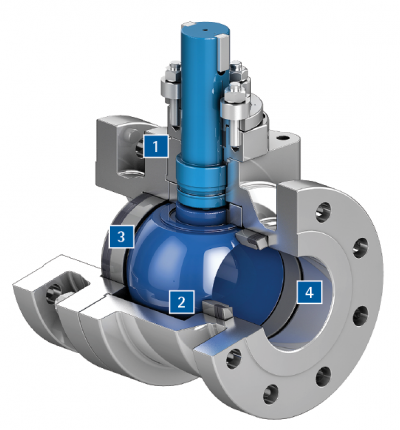
ValvTechnologies’ low pressure, trunnion-style, metal-seated ball valve incorporates many of the features of the traditional integral seat design into a lower-torque, bi-directional valve. The NexTech® R features a readily adjustable stem sealing design with a four-stud, live-loaded, industrial-grade packing gland assembly and offers diamond mate-lapped tungsten or HVOF RiTech® coating on sealing surfaces. The NexTech® R is available in a variety of end connections to meet customer’s specifications.
- Live-loaded gland area. NexTech® R’s design features a four stud, live-loaded assembly designed for heavy industrial applications. The sealing material is high purity Grafoil® surrounded by stainless steel wire mesh anti-extrusion rings.
- Carbide sealing surfaces. The sealing surfaces are overlaid with tungsten or chromium carbide using our exclusive HVOF RiTech® process. These surfaces have a hardness of 68 – 72 Rc to allow long periods of operation in the most severe conditions.
- High integrity seat surfaces. To prevent leaks around the seats, ValvTechnologies has developed an innovative double seal design for high temperature operation and/or high cycling applications. In low temperature, high cycling service, a secondary elastomer seal is installed on the seat perimeter
- Solids resistance. In addition to the carbide coatings which will allow the valve to function in highly abrasive applications, the individual valve parts have additional seals to prevent interference from solids in the system. This provides for outstanding performance in catalyst systems, streams with solids contamination and polymers.
- Guaranteed tight shut-off. Benefit: Enhanced process safety and repeatable sealing allows operation under process excursions
- True metal-to-metal sealing without using secondary elastomeric seals. Benefit: Inherent fire safety
- Solid-proofed by design. Benefit: Process reliability
- HVOF RiTech® coating technology. Benefit: Extended life
- Grafoil® seals. Benefit: Reduced maintenance costs
- Double block-and-bleed capability. Benefit: Enhanced process safety
- High-cycling capability. Benefit: Process reliability
- Bi-directional sealing by design. Benefit: Enhanced process safety, lower maintenance, less downtime
- Single-piece anti blow-out stem design. Benefit: Enhanced process safety
- Impervious to high thermal cycling. Benefit: Enhanced process safety
- Certified to use in SIL-3 loop. Benefit: Enhanced process safety
- Live-load stem packing (four-bolt design). Benefit: Lower emissions
- Stem fugitive emissions per ISO 15848-1 Class B. Benefit: Lower emissions, enhanced process safety
- Fire safe certification: API-607. Benefit: Enhanced process safety
Case Study: Molecular Sieve Switching Valve Success
Location: British Columbia
Plant type: Dehydration system
Application: Sour gas dehydration
Product: 3” V1-1, 6” NexTech®
Requirement: Molecular sieves are often utilized in the petroleum industry, especially for the purification of gas streams. Valves leading into and out of molecular sieves cycle frequently and leakage in these critical areas can make it difficult or impossible to meet product purification requirements. Sour gas dehydration is of particular interest because of the complexity introduced by the acidic and corrosive nature of H2S and CO2. The challenge for dehydration units to maintain their reliability when a valve fails to isolate and/or operate due to the abrasive wear is costly. A single, carefully selected valve can answer a large number of concerns.
A typical dehydration system consists of two or more columns packed with a molecular sieve material (zeolites). As the wet/sour stream is processed in one column, the other column is regenerating. The switching valves on the molecular sieving system plays an important role of directing the inlet/outlet stream of gas into the columns from an adsorption phase into a regeneration and cooling phase in sequence. Cycling frequency varies depending on the molecular sieving system but typically these valves can cycle three or more times a day. The typical lifespan of other valve designs in this corrosive environment is approximately one year and routinely replaced during scheduled maintenance shutdowns.
Solution: ValvTechnologies’ zero-leakage carbide coated metal seated ball valves were selected and installed for a major operator’s sour gas plant in Monkman, British Columbia. These valves feature the same design proven since ValvTechnologies’ first installation of valves in a molecular sieve system. The first installation is still providing severe service zero leakage isolation seven years after its initial installation. Given a conservative one day shut-down per year to replace other designed valves in a plant processing 220 mmcfd of saleable gas at $750,000 per day, that is $5.25M in improved efficiency over the course of seven years.
- Refining. Continuous catalyst regeneration (CCR) reforming (UOP and Axens), pressure swing adsorption (PSA) skids, cumene production, low-pressure catalyst handling in hydrotreaters and hydrocrackers, gas drier (molecular sieve) applications, hydrogen or oxygen service
- Chemical. Unipol polyethylene (when metal seated), dow polypropylene, PSA skids, silicon processing, high-cycle lock-hopper valves
- Gasification. Lock-hoppers, black water, syngas isolation
- Power. Bi-directional, low-pressure applications such as soot-blowers and chemical handling
- Specialty. Corrosive applications where seat material should be different than body material, high-cycle applications, bi-directional, double block-and-bleed
